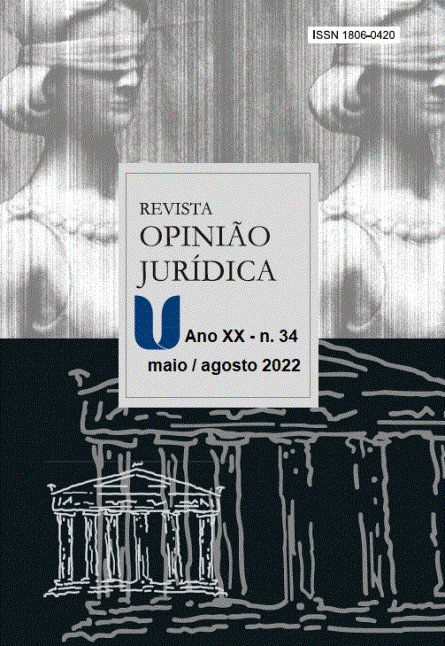ARTIFICIAL INTELLIGENCE AND LEGAL CHALLENGES
DOI :
https://doi.org/10.12662/2447-6641oj.v20i34.p180-196.2022Mots-clés :
artificial intelligence, legislation, legal personality, legal responsibility, implementationRésumé
Objective: This paper is dedicated to Artificial Intelligence and it consists in identifying the role and functions performed by Artificial Intelligence by noting the innovations brought by the introduction of this technology. Artificial Intelligence seems to be the most successful achievement of scientists today. As a result of this development and widespread use have arisen discussions on the legal regulation of Artificial Intelligence.
Methodology: The main methodological approach applied is the normative approach. The paper will be based on the qualitative method, which consists of collecting and processing data in order to compare and interpret the provisions or policies that provide for artificial intelligence. The following research methods will be applied in this paper: research method, descriptive method, comparative and analytical method, interpretive analysis method and illustrative method.
Results:There is still no proper legislative framework on Artificial Intelligence. Despite not having a consolidated legal framework, states have made the first efforts in drafting legal acts and norms governing the field of Artificial Intelligence. From the concrete analysis of existing legislative acts in many countries, we conclude that the intention of the legislator in trying to regulate the field of Artificial Intelligence arises as a result of the disadvantages of using these technologies, their widespread use and ability to influence the way of the development of many processes.
Contributions: The article contributes to the theoretical treatment of Artificial Intelligence by arguing on the problems of its legal regulation.
Téléchargements
Publiée
Comment citer
Numéro
Rubrique
Licence
La soumission d'articles à l'analyse de l'équipe éditoriale de Revista Opinião Jurídica implique, par cet acte même, la cession, de la part de(s) auteur(s), à Centro Universitário Christus - UNICHRISTUS, de l'oeuvre afin de reproduction, divulgation, distribution, impression, publication et de la rendre disponible, selon les normes de publication (Norma de Publicação 414 R. Opin. Jur., Fortaleza, ano 12, n. 16, p. 1 - 414, jan./dez. 2014) à la charge de UNICHRISTUS, sous toute forme ou moyen existant ou futur, selon l'article 49 et suivants de la Loi 9.610/98.
Paragraphe premier. La cession objet de ce terme est faite à titre non exclusif et gratuit, incluant la totalité de l'oeuvre.
Paragraphe 2: UNICHRISTUS peut rendre disponible, pour des finalité didactiques, l'oeuvre complet ou en parties, des changes à son contenu étant interdites, à l'exception de corrections ou formatages nécéssaires.
Paragraphe 3: La cession est valable dans tous les pays, en langue portugaise ou version traduite, selon l'intérêt de UNICHRISTUS.
LES RESPONSABILITÉS
Au moment au l'article est soumis à la revue, le(les) auteur(s) prend(prennent) la responsabilité exclusive concernant l'intégralité du contenu de l'oeuvre. Toute mesure judiciaire ou extra-judiciaire sera, donc, la responsabilité de l'auteur.
Paragraphe unique. Au cas où plusieurs personnes sont les auteurs de l'oeuvre, leur responsabilité sera solidaire, sauf preuve contraire.






























